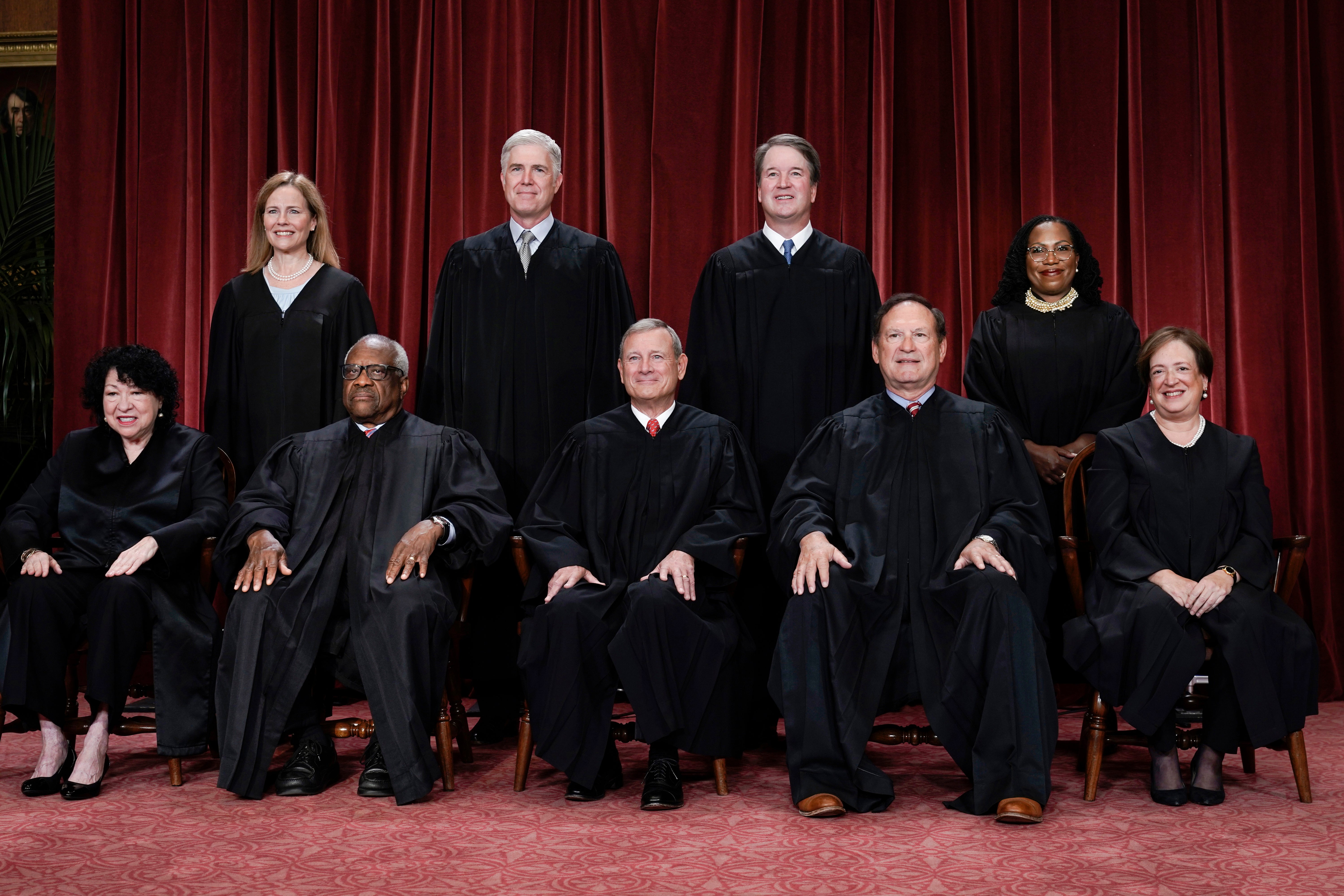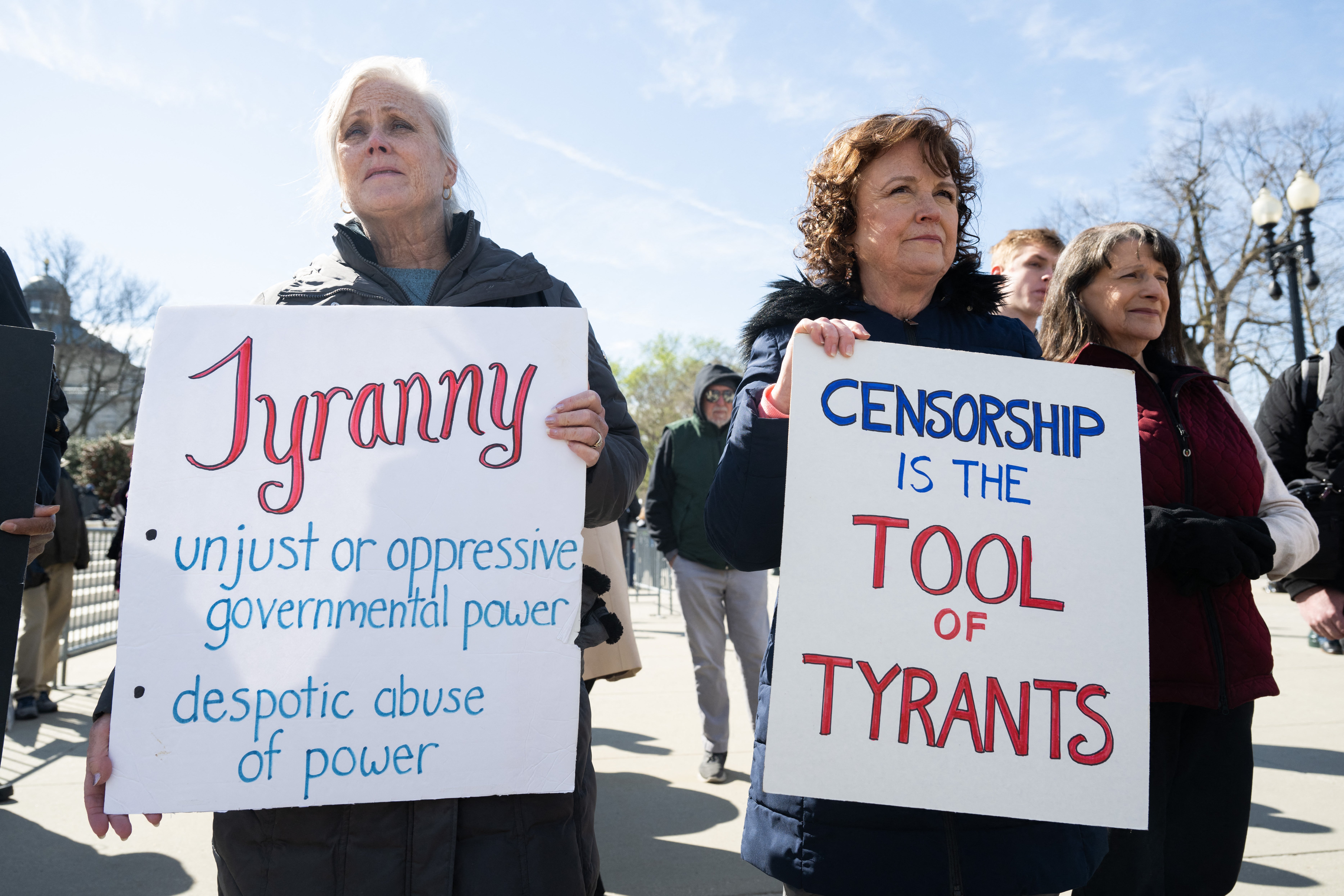Supreme Court backs Biden administration’s push to restrict misinformation on social media
The Biden administration asked social media companies to remove misinformation about Covid-19 on platforms during the pandemic

In a win for the Biden administration, the Supreme Court ruled that the government can ask social media companies to remove harmful misinformation on their platforms.
In a 6-3 decision, justices threw out a lower court ruling that limited the government’s ablity to communicate with social media companies, saying that decision was incorrect because the challengers - two states and five social media users - failed to show they were the proper groups to bring the lawsuit.
The case stems from the Biden administration’s attempt to reduce misinformation about Covid-19 during the pandemic through requests to social media companies to take down false statements about vaccines or the virus. Missouri and Louisiana filed lawsuits alleging the government “coerced” the companies into removing the posts - and violated First Amendement rights.
But the Supreme Court said that those requests did not amount to coercion because the states and users suing did not show they suffered any harm.
“The plaintiffs fail, by and large, to link their past social media restrictions and the defendants’ communications with the platforms,” Justice Amy Coney Barrett wrote for the majority opinion.

In perhaps one of the most buzzwordy cases of the term, the states targeted the Biden administration, on behalf of two Covid-skeptical infectious disease epidemiologists, an anti-mask advocate, the owner of the conspiracy theory website The Gateway Pundit and a psychiatrist who opposed lockdown mandates, for what they believed was an orchestrated public and private pressure campaign to suppress conservative viewpoints, speakers and content online.
They alleged the Biden administration “coerced” social media companies into removing public health misinformation about vaccines and the pandemic, the integrity of the 2020 election, the truth of the Hunter Biden laptop story and more.
During oral arguments in March, Louisiana’s Solicitor General said the government had continuously pestered social media companies to remove specific content and intimidated them by claiming high-level individuals in the White House were concerned.
However, the government denied coercing social media companies, saying they had only requested social media companies remove misinformation from their platforms that could harm public health, public safety and the presidential election.

Deputy U.S. Solicitor General Brian Fletcher said it was not uncommon for government officials to correspond with social media platforms or even journalists about certain content.
Justice Brett Kavanaugh – who worked in the executive branch in the late 1990s – agreed, recalling that White House public relations specialists would “regularly call up the media and berate them.”
Fletcher argued the government’s requests were not forced and while at times it was intimidating it did not step into coercion.
But the larger question during oral arguments was whether the plaintiffs had “standing” - or had proved they were harmed by the Biden administration’s actions or that they posed future harm.
The Supreme Court said they did not, citing their inability to “point to any specific instance of content moderation that caused them identifiable harm.”

Justices Samuel Alito, Clarence Thomas and Neil Gorsuch dissented, arguing the government’s requests suppressed “valuable speech” about the pandemic and vaccines.
“Our country’s response to the COVID–19 pandemic was and remains a matter of enormous medical, social, political, geopolitical, and economic importance, and our dedication to a free marketplace of ideas demands that dissenting views on such matters be allowed,” Justice Alito wrote in the dissenting opinion.
“I assume that a fair portion of what social media users had to say about COVID–19 and the pandemic was of little lasting value. Some was undoubtedly untrue or misleading, and some may have been downright dangerous. But we now know that valuable speech was also suppressed. That is what inevitably happens when entry to the marketplace of ideas is restricted.”
Join our commenting forum
Join thought-provoking conversations, follow other Independent readers and see their replies
Comments
Bookmark popover
Removed from bookmarks